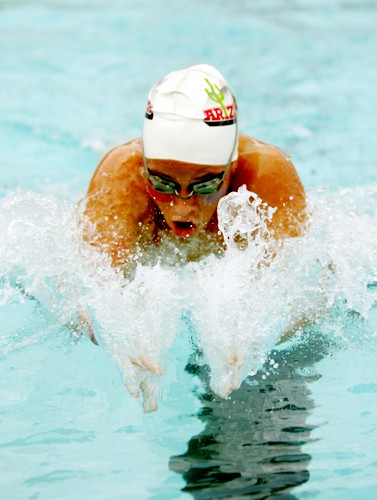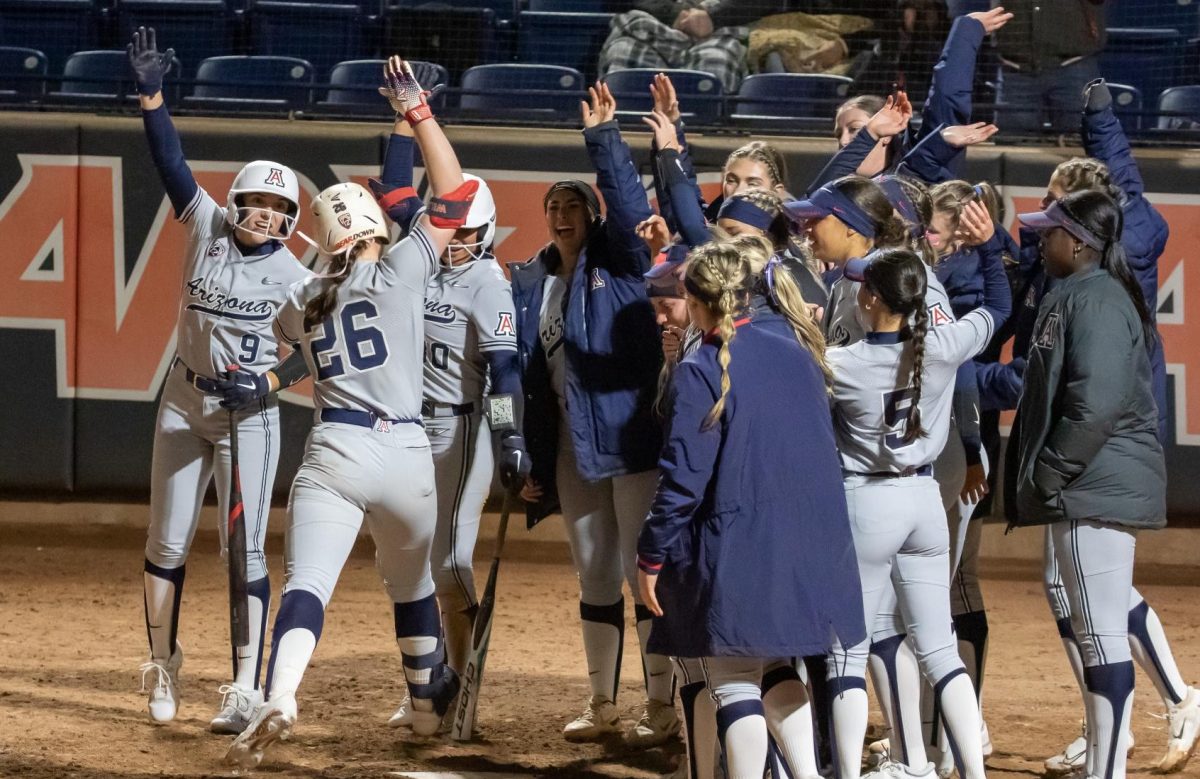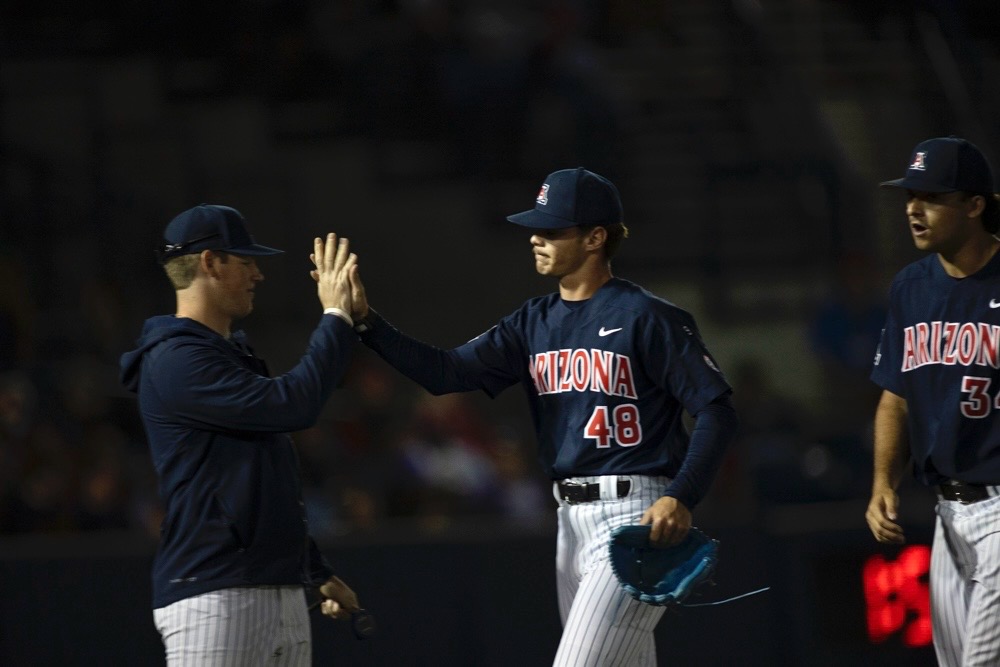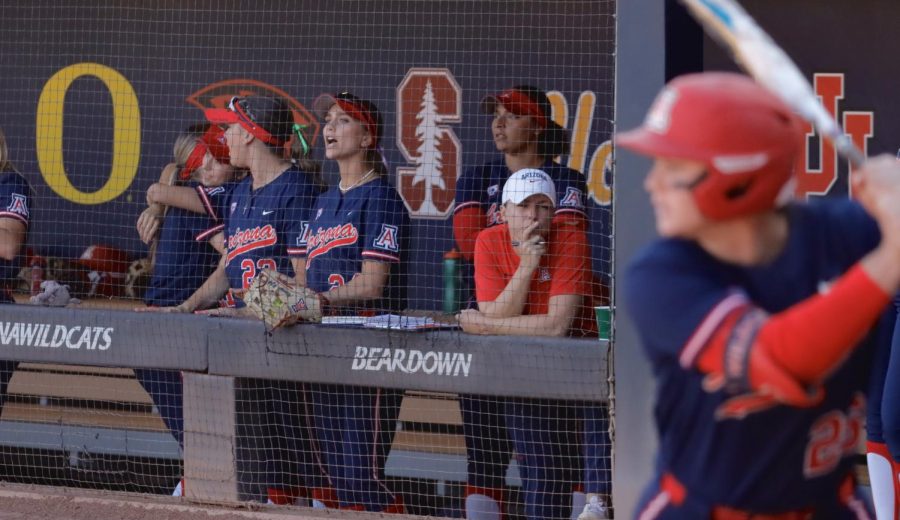Former Arizona swimmer Annie Chandler, the Pacific 10 Conference Woman of the Year for 2010-11, participated in the World University Games in Shenzhen, China, last week and earned a gold medal in the 50-meter breaststroke. The Daily Wildcat caught up with Chandler to discuss her post-graduation travels and her future.
Daily Wildcat: Congrats on winning the Gold Medal.
Annie Chandler: Thanks. Yeah, pretty much all I could get through was that one-lapper.
DW: What was your training like in preparation for the World University Games?
AC: Well, it’s been kind of an interesting summer. You usually go through a training cycle in the preseason where you work real hard and eventually get to anaerobic training and then rest before a big meet, so you’re basically not doing anything too strenuous for three or four weeks before a big meet. I did that for a meet in Paris in June and then kind of continued resting for nationals in the beginning of August. By the time I got to China I was kind of maxed out. I felt fine for the 50 (meter breaststroke), but I was dying pretty hard at the end of my races. It was an experimental summer, to see how long I can rest, and now I know. I can probably rest for like six weeks.
DW: As an Olympic swimmer, have you had to travel outside of the United States a lot?
AC: I haven’t really traveled much before this year, but I did a lot of traveling this summer. When I graduated, a lot of coaches told me that’s what I need, some international experience.
DW: How is it different competing internationally as opposed to what you are originally accustomed to?
AC: It is a different playing field against foreigners. It puts you a little more on edge, because I am somebody who likes the familiarity of American swimmers. Kind of a setting I’m comfortable in, and when you’re taken out of that it gives you a whole new experience to deal with since there’s a language barrier, and you can’t really take your mind off your nerves in the ready room before the race because not everybody speaks English.
DW: What other countries have you been to (besides China)?
AC: I’ve been to Japan and France.
DW: Do you ever really have time to explore these countries when you are traveling?
AC: It’s pretty much all business, which is the biggest bummer because you get so excited to go to all of these places. When I was in Japan, I was an hour and a half outside of Tokyo and never got to see it, which is a shame. If I was smarter I would have stayed a few days after. That’s not something I really wanted to do in China; I was ready to go home as I was there for a pretty long time. I was there long enough to get sick of the village and dining hall and living off of PB and J (laughs).
DW: What have you been up to since graduation, other than swimming?
AC: I had an internship at the Tucson Museum of Art in the spring, since that’s the most inactive time in the swimming year, then this summer I was busy making these trips and didn’t do much other than swimming.
DW: You majored in journalism in college; what are your plans for your future in terms of journalism?
AC: I would like to write, but right now, I’m kind of all talk. In Paris, I blogged for Swimming World Magazine. Eventually I would like to write, all the advice I’ve gotten is to make sure I’m not just swimming. Right now, hopefully in the fall, I will find something to help my resume.
DW: Do you ever miss college life and college swimming?
AC: Yes and no. There are certain aspects of college swimming that I miss. Now I’m kind of on the outside looking in since I still train with the team, but it’s different vibes, I guess. I’m no longer accountable to the team, which is good because there are certain things I know are good for me that I have learned over the years, and I have more freedom to make my own decisions when it comes to my training, which is freeing in a way. I do kind of miss the accountability sometimes because some days that’s what gets you to practice.









